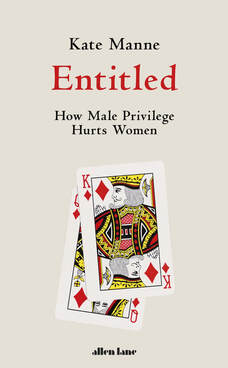 I just finished reading Kate Manne‘s Entitled. I can’t remember where I first heard about it or why I opted
to buy a copy, but it had been sitting in my to-read pile for a while and so I picked it up last month to read over the festive period.
I just finished reading Kate Manne‘s Entitled. I can’t remember where I first heard about it or why I opted
to buy a copy, but it had been sitting in my to-read pile for a while and so I picked it up last month to read over the festive period.
The book takes a pop-sci dive into research around male entitlement and the near-universal influence of patriarchal ideology. It’s an often bleak and sometimes uncomfortable read: Kate Manne draws a line connecting the most egregious and widely-reported abuses of power by men to much-more-commonplace “everyday” offences, many of which are routinely overlooked or dismissed. The examples she provides are a sad reminder of quite how deeply-embedded into our collective subconscious (regardless of our genders) are our ideas of gender roles and expectations.
It’s feels somewhat chastening to see oneself in some of those examples, whether by my own assumed entitlement or merely by complicity with problematic social norms. We’ve doubtless all done it, at some point or another, though, and we don’t make progress towards a better world by feeling sorry for ourselves. By half way through the book I was looking for action points that never came; instead, the author (eventually) lays out what she’s doing and leaves the reader to make their own decisions.
The vast majority of the book is pretty bleak, and it takes until the final chapter before it reaches anything approximating hope (although the author refrains from classifying it as such), using Manne’s then-imminent parenthood as a vehicle. She finishes by talking about the lessons she hopes to impart to her daughter about how to thrive in this world, which seems less-optimistic than discussing, perhaps, how to improve the world for everybody, but is still the closest thing it delivers to answering “what can we do about this?”.
But I suppose that’s the message in this book: male entitlement is a product of our endemic patriarchy and, try as we might, it’s not going away any time soon. Instead, we should be picking our battles: producing a generation of women and girls who are better-equipped to understand and demand their moral rights and of men and boys who try to work against, rather than exploit, the unfair advantages they’re afforded at the expense of other genders.
That I’d hoped to come to the end of the book with a more feel-good outlook betrays the fact that I’d like there to be some kind of magical quick fix to a problem that I’ve certainly helped perpetuate. There isn’t, and that’s a let down after the book’s uncomfortable ride (not a let down on the part of the book, of course: a let down on the part of the world). The sadness that comes from reading it is magnified by the fact that since its publication in 2020, many parts of the Western world and especially Manne’s own USA have gotten worse, not better, at tackling the issue of male entitlement.
But wishful thinking doesn’t dismantle the patriarchy, and I was pleased to get to the back cover with a slightly sharper focus on the small areas in which I might be able to help fight for a better future. A good read, so long as you can tolerate the discomfort that may come from casting a critical lens over a society that you’ve been part of (arguably it could be even-more-important if you can’t tolerate such a discomfort, but that’s another story).
(In 2025 I’m going to try blogging about the books I read, in addition to whatever else I write about. Expect an eclectic mix of fiction and non-fiction, probably with a few lapses where I forget to write about something until well after I’m deep into what follows it and then forget to say anything about it ever.)